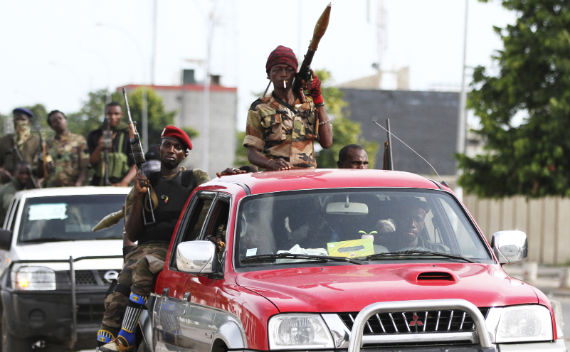Ivory Coast Humanitarian Crisis Continues
More on:

Despite the ostensible resolution for the Western media of the conflict in Ivory Coast with Laurent Gbagbo’s April capture and President Alassane Ouattara’s assumption of power, fighting continues among various factions. Not all armed groups have put down their weapons, and residents continue to report gunfire in Abidjan. The political affiliation, if any, of some some of the fighting groups is obscure.
Gbagbo, his recent arrest notwithstanding, is a shrewd politician with some popular support and still appears to be politically active. For example, his recent appeal to his supporters to stop fighting garnered praise from South Africa’s archbishop Desmond Tutu. In a recent piece in Foreign Policy, Thabo Mbeki, former South African chief of state, highlights that the role of the UN and France in Gbagbo’s denouement has not disappeared from African minds—and may engender resentment.
The UN is warning of an ongoing humanitarian disaster. UN and aid agencies estimate that at least four hundred thousand Ivorians are living in camps for internally displaced persons (IDPs) as well as in refugee camps in neighboring countries, especially Liberia. The UN warns that humanitarian agencies risk running out of resources.
It is too early for the international community to let Ivory Coast drop off its screen. And the humanitarian issues will require immediate attention.
More on:
 Online Store
Online Store
